Co-authored by: Morghan Lemmenes and Joe Van Ryn
Over the course of October we were delighted to curate a film series revolving around our university theme of Resilience. Each film that we showed truly highlighted different aspects of Resilience. Whether it be a documentary on adverse childhood experiences, a comedy focused on the struggles of fitting in as a young teenager, or a horror film about a family trying to stick together and stay alive after the apocalypse, all our films encompassed the idea that no matter how difficult life gets, we all have the ability to persevere, overcome adversity, and move forward with our lives.
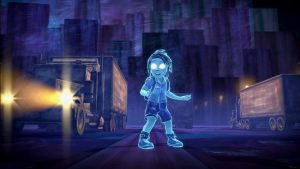
Animation explaining toxic stress in the documentary Resilience
The first film in our series was James Redford’s eye-opening documentary Resilience: The Biology of Stress and the Science of Hope. The documentary discussed how emotional trauma plays a long-term effect on people and focused on the notion of Adverse Childhood Experiences (ACE). One of the interviewees was Dr. Nadine Burke Harris, who explained how children who experience toxic stress and emotional trauma can carry that with them the rest of their lives. During her appointments with children and their parents, she would have them find out their ACE score and apply that to their situation. By looking at the parent’s ACE score, she can determine how their childhood affected the parent’s life now and how it is affecting their child’s life at that very moment. These traumatic events that create a long-term effect can be taught in other ways. Barry Jenkin’s Moonlight shows how toxic stress plays a role in Chiron’s life, from childhood to adulthood.
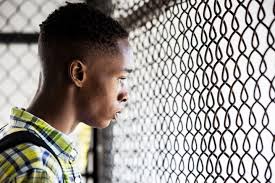
Chiron during his high school years in Moonlight
Jenkin’s Moonlight follows Chiron Harris during three crucial points in his life: Chiron as a young boy (“Little”), Chiron in his high-school years (“Chiron”), and Chiron as an adult (“Black”). Breaking up the film into three parts to showcase these crucial points, allows an in-depth look at how toxic stress affects Chiron’s life. When he was a young boy, he lived with his drug-addicted mother, who couldn’t take care of either of them respectfully. Since she was a neglectful single mother, and also drug-addict, Chiron would have problems later on in life. If Chiron found out his ACE score, it would show that he would experience health problems or go down the same path. However, the ACE score doesn’t tally the positives in life, so even if he was mentored by Juan, who was also a drug dealer, Chiron will still have problems later on in life. When Chiron is an adult, he displays uncertainty and vulnerability with every decision he makes. He also becomes a drug dealer when he is an adult, showing that he could not escape the life he was raised in. Continuing in the series, we show The Kid, which examines an adult reluctantly becoming a parent and how that affects the family’s life.
This is the third year in a row that we were privileged enough to screen a Charlie Chaplin film. The Kid demonstrated the incredible resilience of Chaplin’s character ‘The Little Tramp’ and the orphan child he takes in and raises, John. Despite the initial reluctance to take in the child, the two partners in crime grow to depend on each other. Through a perfect mixture of comedy and drama, The Kid demonstrates companionship as we watch Chaplin’s character and the child struggle day-to-day to make ends meet. Just as the opening title said, the film truly was a picture with a smile and a tear. Perhaps the most astonishing aspect of The Kid was how it was in many ways a reflection of Chaplin’s own life: his mother being committed to an asylum at the age of nine, his father dying two years later, and his first-born child passing away three days after his birth. The Kid speaks to the child-parent connection that he never truly experienced but had always longed for.
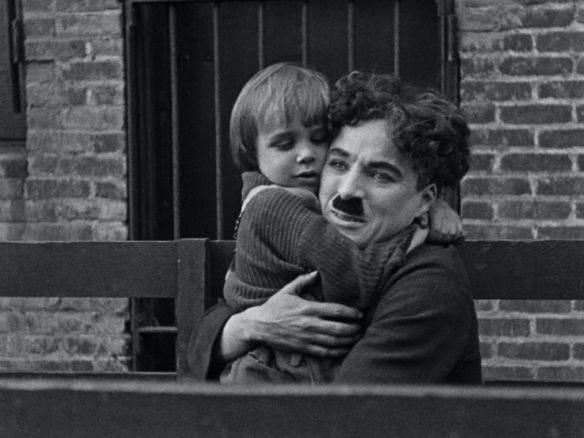
The kid and the tramp embrace after being separated in The Kid
Arguably no film in our series focused on the welfare of children more than Morgan Neville’s Won’t You Be My Neighbor?, a documentary on Fred Rogers. This touching documentary highlighted the life and career of Rogers and his PBS television series Mr. Rogers Neighborhood, a TV show dedicated to ensuring that kids understand their worth, no matter what kind of difficulties they face. Mr. Rogers understood the importance behind children feeling safe, loved, and acceptance and he faced a lot of criticism for that. A lifetime dedicated to goodness and service, Rogers taught the children of the world, the most vulnerable demographic, to be resilient. Kids may not always understand why they get bullied or why there is so much hate in the world and Rogers set out to help children navigate through those uncomfortable feelings. Fred Rogers represented and taught the most important human values: compassion, integrity, respect and kindness.
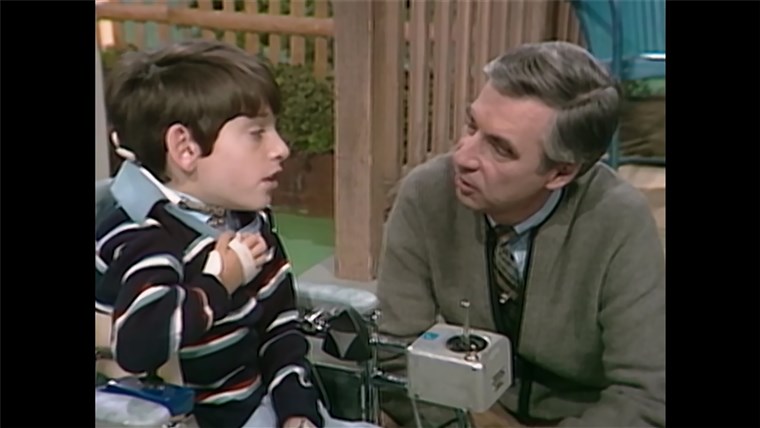
Mr. Rogers helping out a child showcased in Won’t You Be My Neighbor?
In conclusion, the point of our series was not just to provide the students, faculty and general public with free-screenings of some great films. It was to relay a message. That message being that no matter how difficult life gets, no matter what type of situation you find yourself in, we all have the ability to overcome, adapt, and rise above. It was our aim to send the audience home with an improved sense of resilience. Whether it was fiction or non-fiction, each one of our films proved that whatever life throws at you, we all have the willpower to prevail.

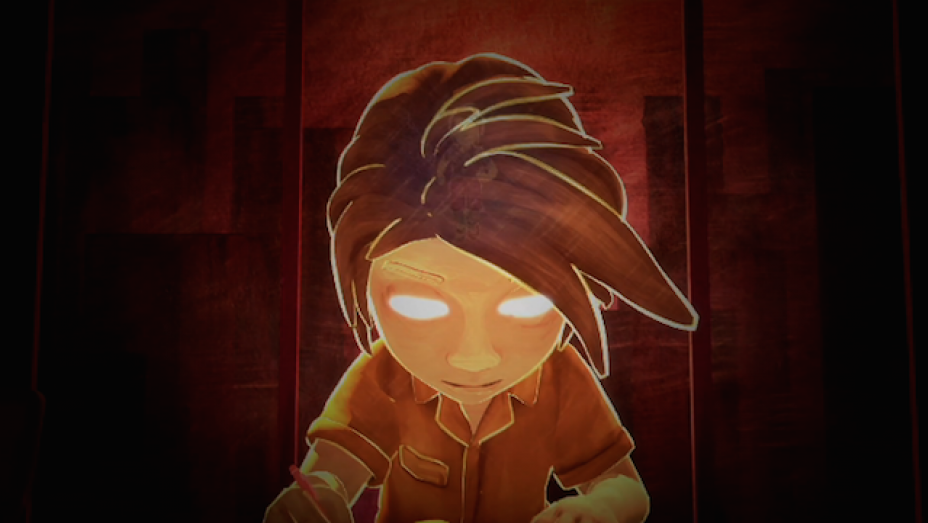
Recent Comments